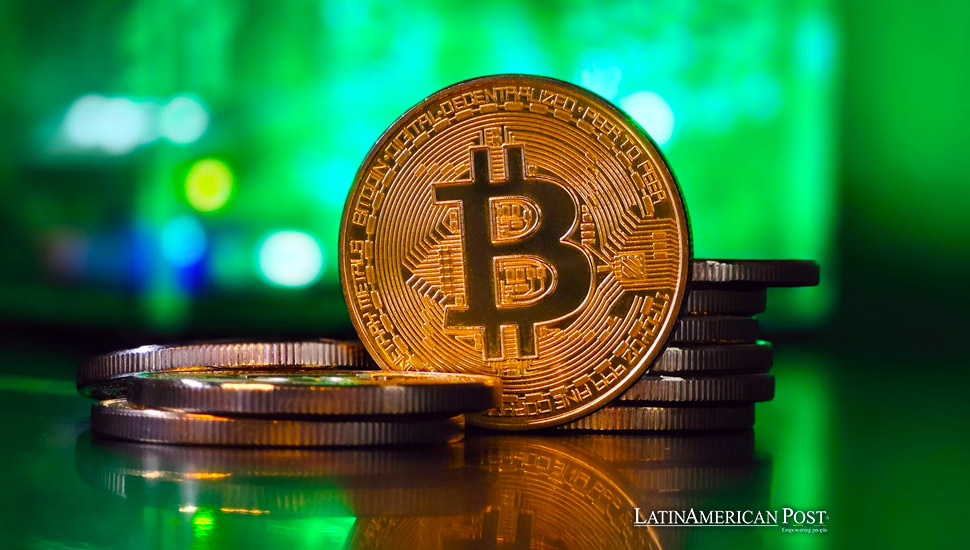El Salvador’s Bitcoin Gamble: A Nation’s High-Stakes Bet

El Salvador now holds over $361 million in Bitcoin, following its daily purchase of 1 BTC since March 2024. President Nayib Bukele’s bold cryptocurrency strategy has sparked international scrutiny and domestic debate, testing the nation’s economic future.
El Salvador’s foray into the world of cryptocurrency reached a new milestone as the nation’s total Bitcoin holdings surpassed $361 million. Since March 16, 2024, the government, under the leadership of President Nayib Bukele, has been purchasing one Bitcoin (BTC) daily, steadily increasing its reserves of the world’s most well-known digital currency. As of the latest figures, the Central American country holds 5,852 Bitcoin, cementing its position as a global trailblazer in national-level cryptocurrency adoption.
This aggressive accumulation strategy continues Bukele’s commitment to integrating Bitcoin into the nation’s economy. The journey began in September 2021 when El Salvador became the first to declare Bitcoin as legal tender. The move was celebrated by cryptocurrency enthusiasts worldwide but was met with skepticism from financial institutions and economic experts. Despite the mixed reactions, Bukele remained undeterred, pushing forward with policies to embed Bitcoin deeper into El Salvador’s financial fabric.
The decision to accumulate Bitcoin at this scale highlights Bukele’s belief in the cryptocurrency’s long-term potential. By purchasing a Bitcoin daily, El Salvador is increasing its digital asset holdings and reinforcing its identity as a pioneering nation in the global cryptocurrency landscape. However, this bold strategy is not without significant risks. Bitcoin’s notorious price volatility means that the value of El Salvador’s holdings could fluctuate wildly, impacting the nation’s financial stability.
The Security of a Digital Fortune
One of the most notable aspects of El Salvador’s Bitcoin strategy is its focus on securing the nation’s digital assets. President Bukele recently announced that a significant portion of the country’s Bitcoin treasury had been transferred into cold storage, a method of storing cryptocurrency offline to protect it from potential cyber threats. This move is part of a broader plan to enhance the long-term security of the nation’s Bitcoin reserves, ensuring that these digital assets are safeguarded against hacking attempts and other forms of cybercrime.
Cold storage involves storing the private keys required to access and manage cryptocurrency on hardware not connected to the internet, such as a USB drive or a specialized hardware wallet. Keeping these keys offline significantly reduces the risk of unauthorized access, making cold storage one of the most secure methods for holding large amounts of cryptocurrency. This security measure is crucial for El Salvador, given the high-profile nature of its Bitcoin holdings and the potential repercussions of a security breach.
The decision to secure Bitcoin in a vault also underscores the government’s commitment to treating its cryptocurrency reserves with the same seriousness as traditional financial assets. In many ways, this approach mirrors the practices of countries that hold large reserves of gold or foreign currency in secure locations. By taking these steps, El Salvador is signaling to both domestic and international observers that it is committed to maintaining the integrity and security of its digital assets.
Bukele’s Cryptocurrency Vision
Since making Bitcoin legal tender in 2021, President Bukele has been an outspoken advocate for cryptocurrency adoption in El Salvador. His administration has introduced a range of initiatives to integrate Bitcoin into the country’s economy and infrastructure. One of the most ambitious projects is a Bitcoin mining operation powered by geothermal energy from a volcano. This move leverages the country’s natural resources to support its digital ambitions. Harnessing geothermal energy to mine, Bitcoin underscores Bukele’s innovative approach and ties the country’s cryptocurrency strategy to environmental sustainability.
Another notable initiative is the introduction of “volcano bonds,” which are bonds backed by Bitcoin. These bonds are intended to raise funds for developing the country’s Bitcoin City, a planned community that will serve as a hub for cryptocurrency innovation and investment. The project represents Bukele’s vision of transforming El Salvador into a global center for cryptocurrency, attracting entrepreneurs, investors, and tech companies worldwide.
Despite the ambitious nature of these projects, Bukele’s cryptocurrency policies have not been without controversy. Critics argue that focusing on Bitcoin could divert attention and resources from more pressing issues such as poverty, education, and healthcare. Moreover, Bitcoin’s volatility raises concerns about the potential financial risks associated with holding large amounts of the cryptocurrency as part of the nation’s reserves.
Bukele’s recent re-election for a second five-year term suggests that he enjoys significant domestic support for his policies, including his cryptocurrency strategy. However, the challenges facing El Salvador’s Bitcoin experiment are far from over. The success or failure of Bukele’s vision will likely depend on his ability to balance the risks and rewards of cryptocurrency adoption, both for the nation’s economy and for its people.
International Scrutiny and Domestic Challenges
El Salvador’s embrace of Bitcoin has attracted significant attention from international organizations and foreign governments. The International Monetary Fund (IMF) has been one of the most vocal critics of the country’s cryptocurrency strategy. The IMF has repeatedly expressed concerns about the potential risks of adopting Bitcoin as a legal tender, including the impact on financial stability, consumer protection, and the country’s relationship with international financial institutions.
Earlier this month, the IMF called for greater transparency in El Salvador’s Bitcoin adoption process and emphasized the need for additional efforts to mitigate the risks associated with this unprecedented monetary policy. The IMF’s concerns are not unfounded; the adoption of Bitcoin as legal tender has no historical precedent, and the long-term implications of such a policy remain uncertain.
El Salvador’s Bitcoin strategy has also drawn attention from U.S. lawmakers. Some have voiced concerns that the country’s adoption of Bitcoin could threaten American interests, particularly in financial regulation and national security. The U.S. government’s apprehension reflects broader concerns about the potential for using cryptocurrencies for illicit activities, such as money laundering and terrorism financing. As a result, El Salvador’s Bitcoin experiment is being closely watched not only by the international financial community but also by governments around the world.
Domestically, Bukele faces the challenge of ensuring that his Bitcoin policies do not exacerbate existing social and economic inequalities. While cryptocurrency adoption has the potential to bring financial inclusion to the unbanked population, it also carries the risk of increasing financial instability if not managed carefully. The volatility of Bitcoin could have a disproportionate impact on low-income households, particularly if the government’s cryptocurrency reserves experience significant value fluctuations.
Furthermore, the focus on Bitcoin has led to concerns that other vital areas of public policy may be neglected. Critics argue that while Bitcoin may offer long-term benefits, the population’s immediate needs, such as access to healthcare, education, and social services, should take precedence. Balancing these competing priorities will be one of the critical challenges for Bukele as he continues to pursue his ambitious cryptocurrency agenda.
Also read: El Salvador Approves $75 Million Loan for Sustainable Urban Mobility.
El Salvador’s decision to accumulate and integrate Bitcoin into the nation’s economy represents a bold and unprecedented experiment in the cryptocurrency world. While President Bukele’s vision has garnered both praise and criticism, the long-term success of this strategy remains uncertain. As the country navigates the complexities of Bitcoin adoption, the world will watch closely to see whether El Salvador’s gamble pays off or becomes a cautionary tale for other nations considering a similar path.





